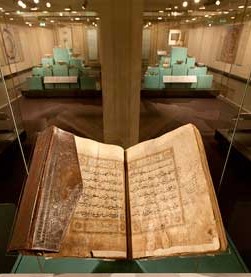 Immediately following the fasting month of Ramadan is the feast of Eid al-Fitr, the festival of breaking the fast. It has a high religious and social significance and is usually celebrated for three days.
Immediately following the fasting month of Ramadan is the feast of Eid al-Fitr, the festival of breaking the fast. It has a high religious and social significance and is usually celebrated for three days.
The children receive gifts from the parents, but not the other way around!
It is a huge celebration and everyone wishes one another « Eid mubarak », a blessed fest.
The great Feast of the Sacrifice, Eid al-Adha, takes place on 1oth day of Dhu-l-hiddja, the 12th month of the Islamic calendar. It is the traditional time of reflection and hajj, the annual pilgrimage to Mecca which every Muslim should attempt at least once in his life.
During Eid it is expected of everyone to perform the Eid prayers and to offer support the poor and needy. The amount of this voluntary donation (sadaqah) is determined by the individual, and is in addition to the zakat, which is a form of tithing and is obligatory.
The zakat (literally, cleansing) is the duty of every faithful Muslim, but is only collected from those whose wealth is above a certain threshold, and may be up to 2.5 percent of annual income. This historic form of social welfare is based on the Islamic imperatives of fraternity and mutual support. As a result the wealthy person’s possessions are « purified » by the donated portion, which according to interpretations of the Quran does not belong to him anyway. The coordination and allocation of donations is handled by the Ministry of Endowments and Religious Affairs, who also advise whom is to be helped, and how. Donations may also be made of comestibles such as rice, oil, sugar and wheat in large quantities, which are then delivered by the donor directly to the recipient in person.
The needy may be large families with low incomes, for example, who have become impoverished through accident or natural calamity.



